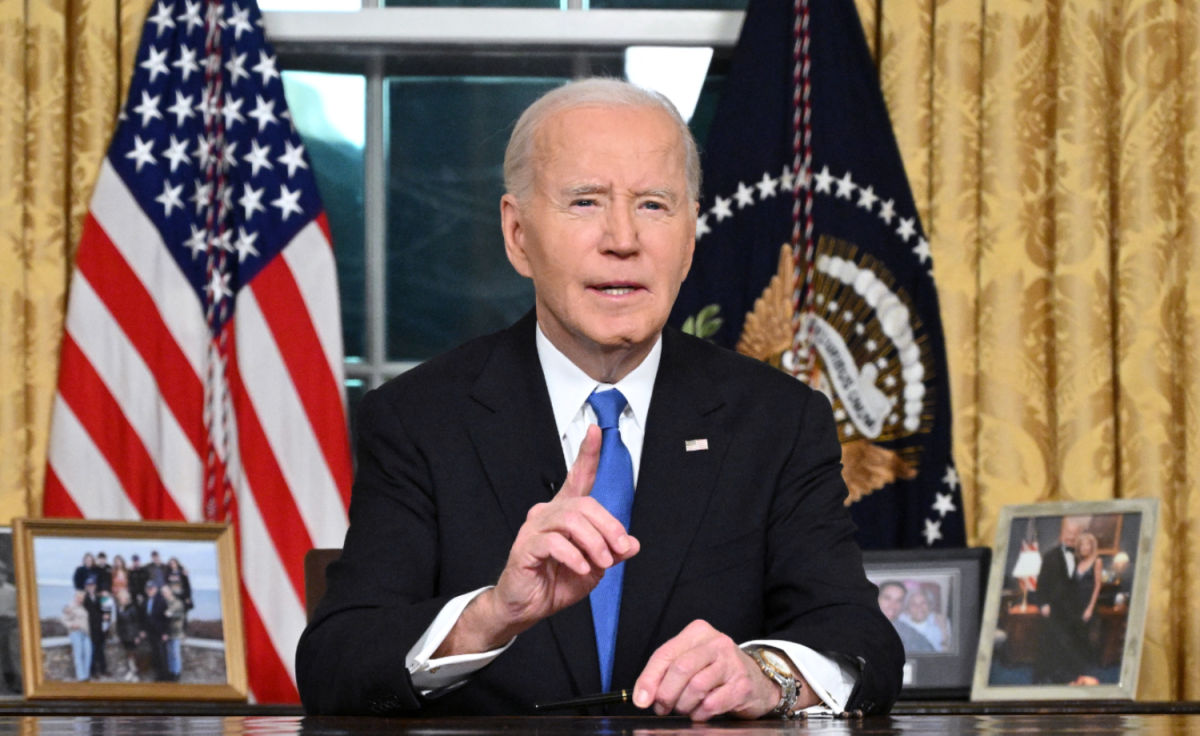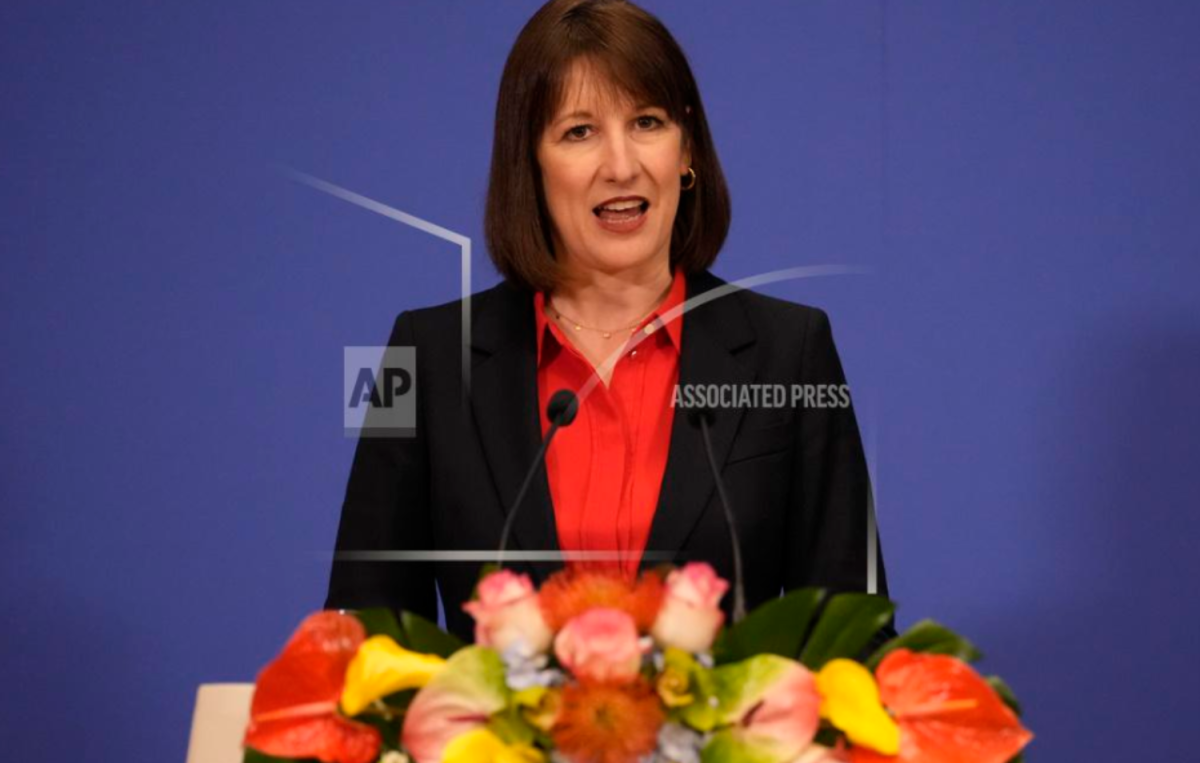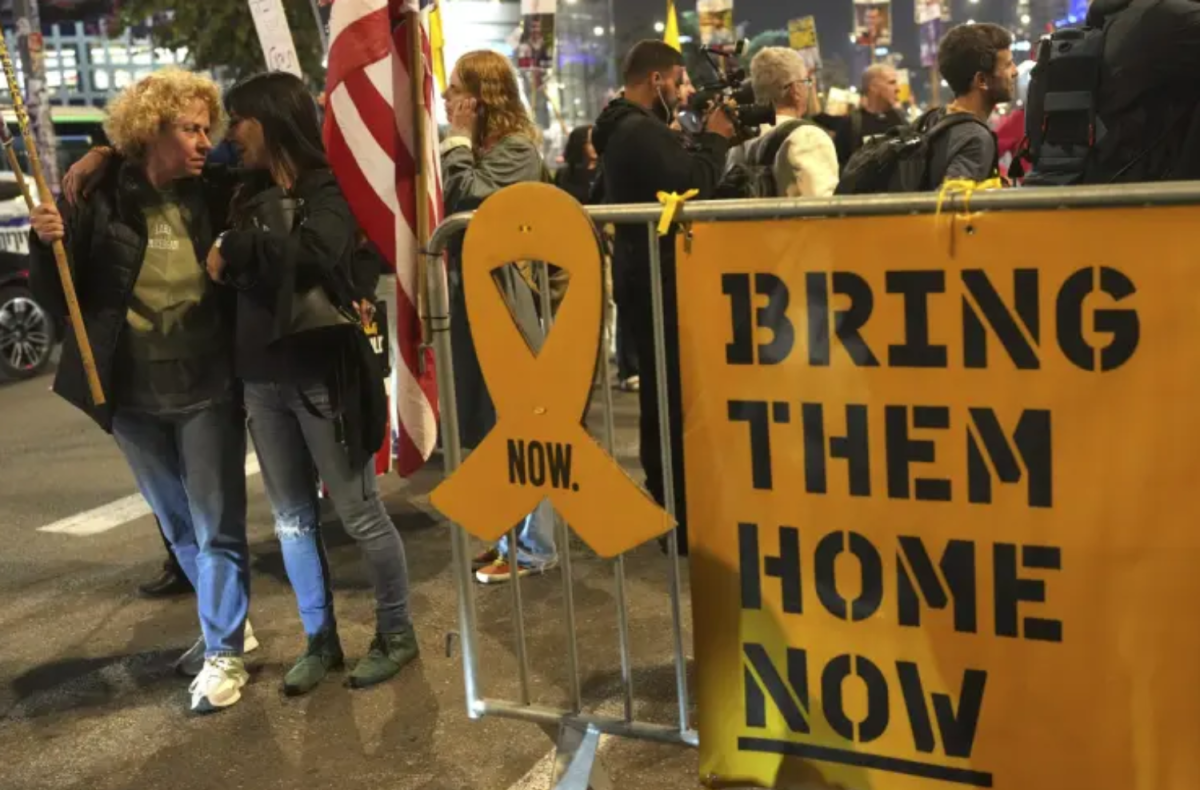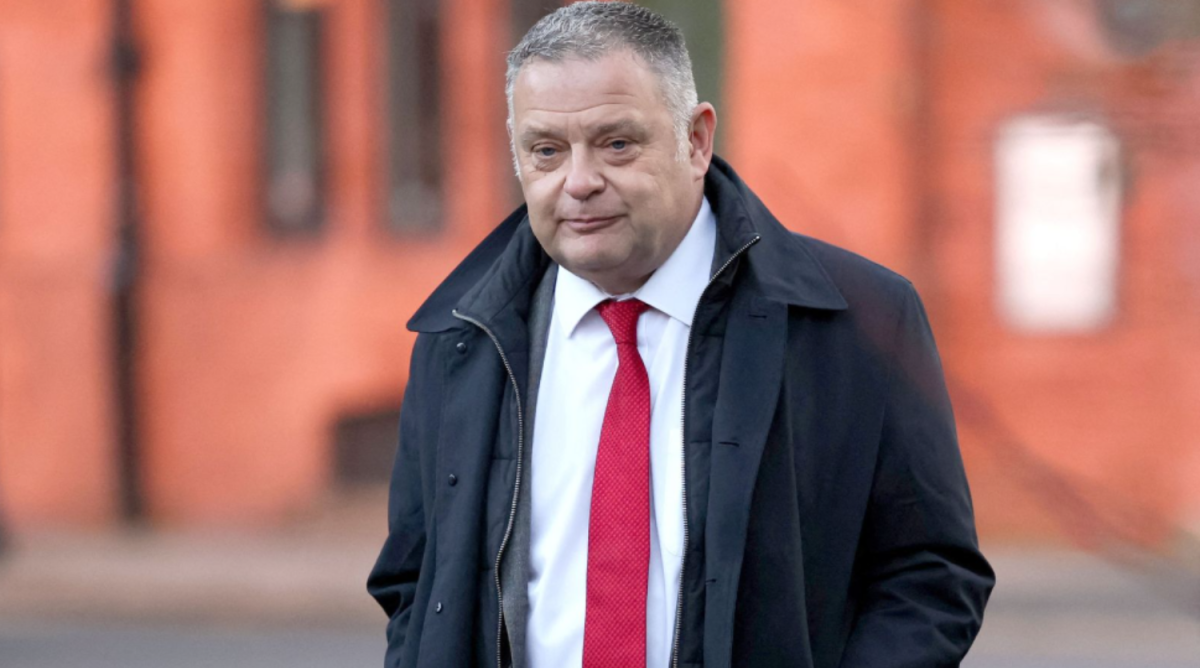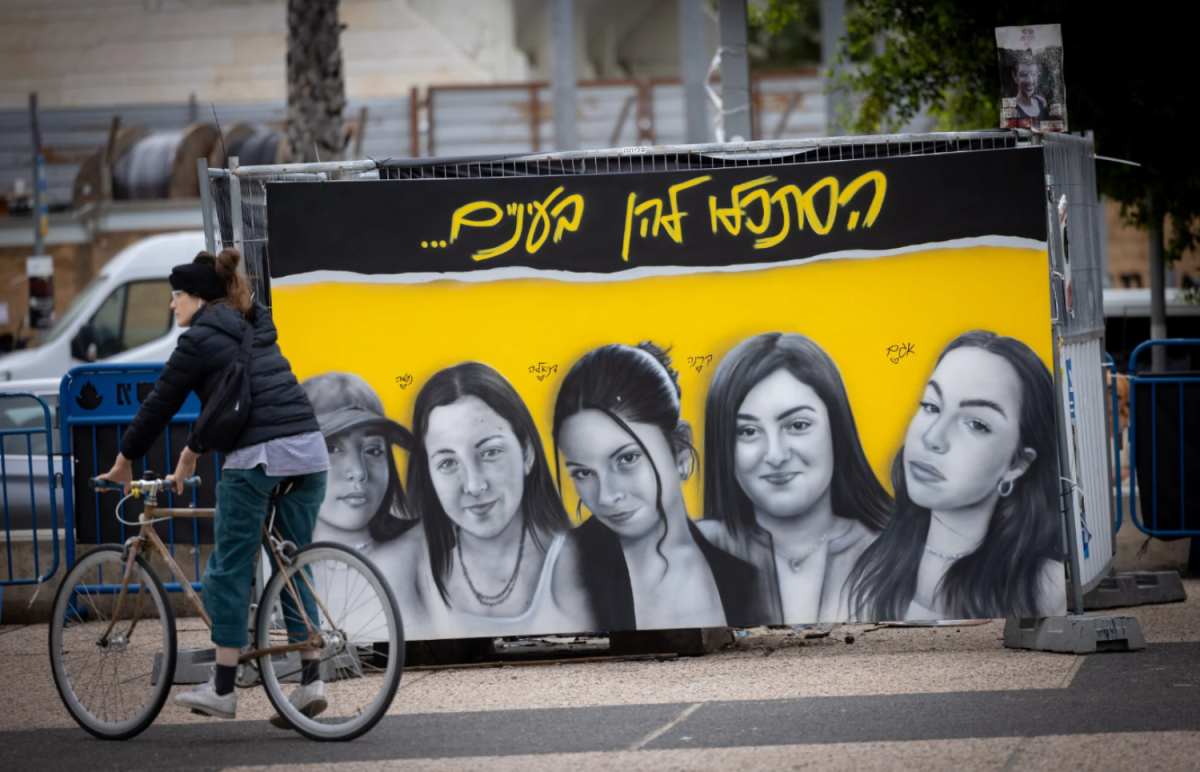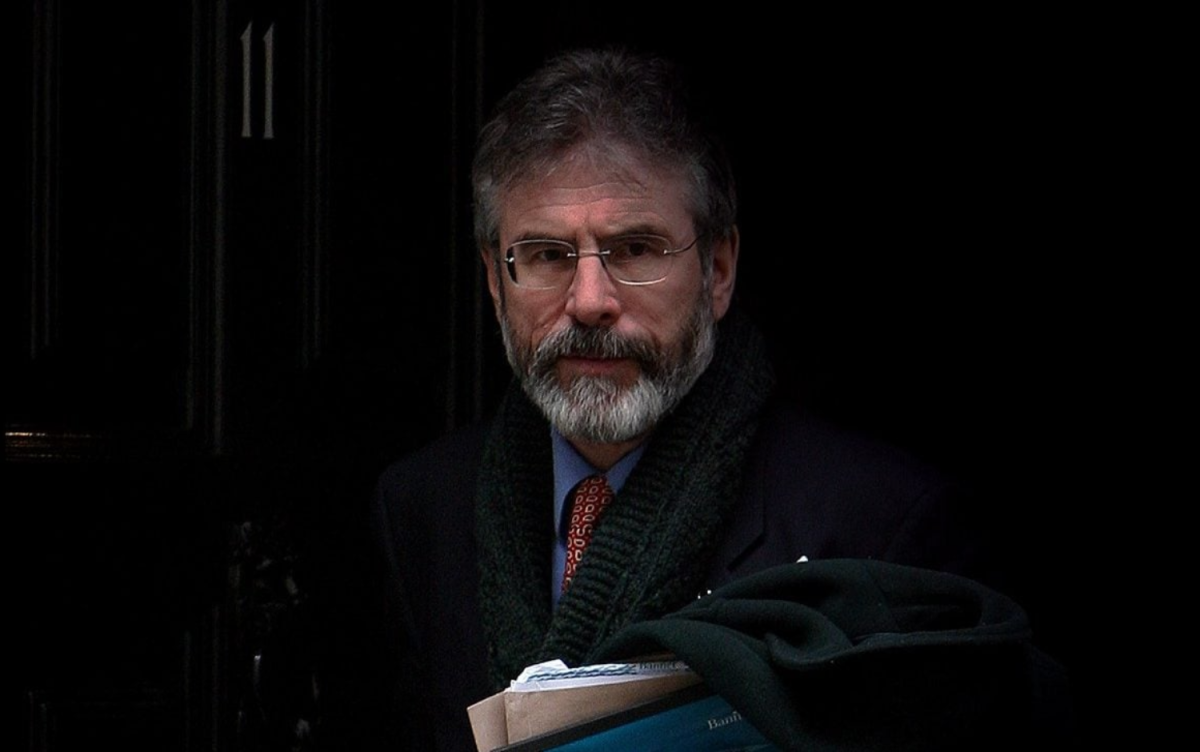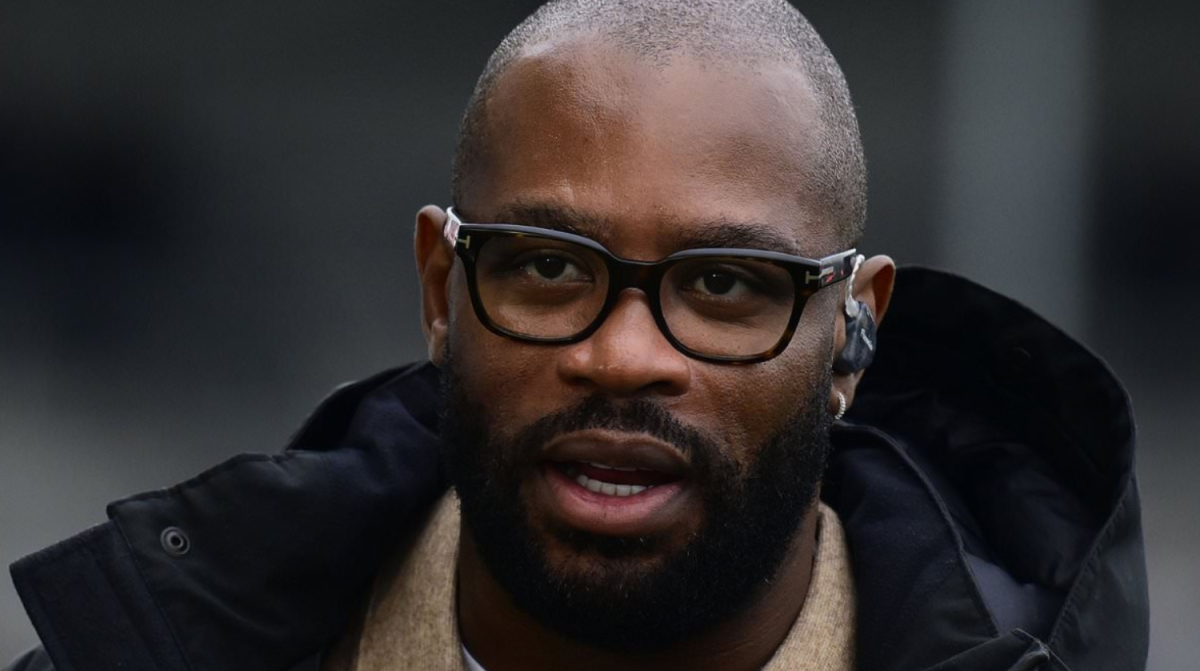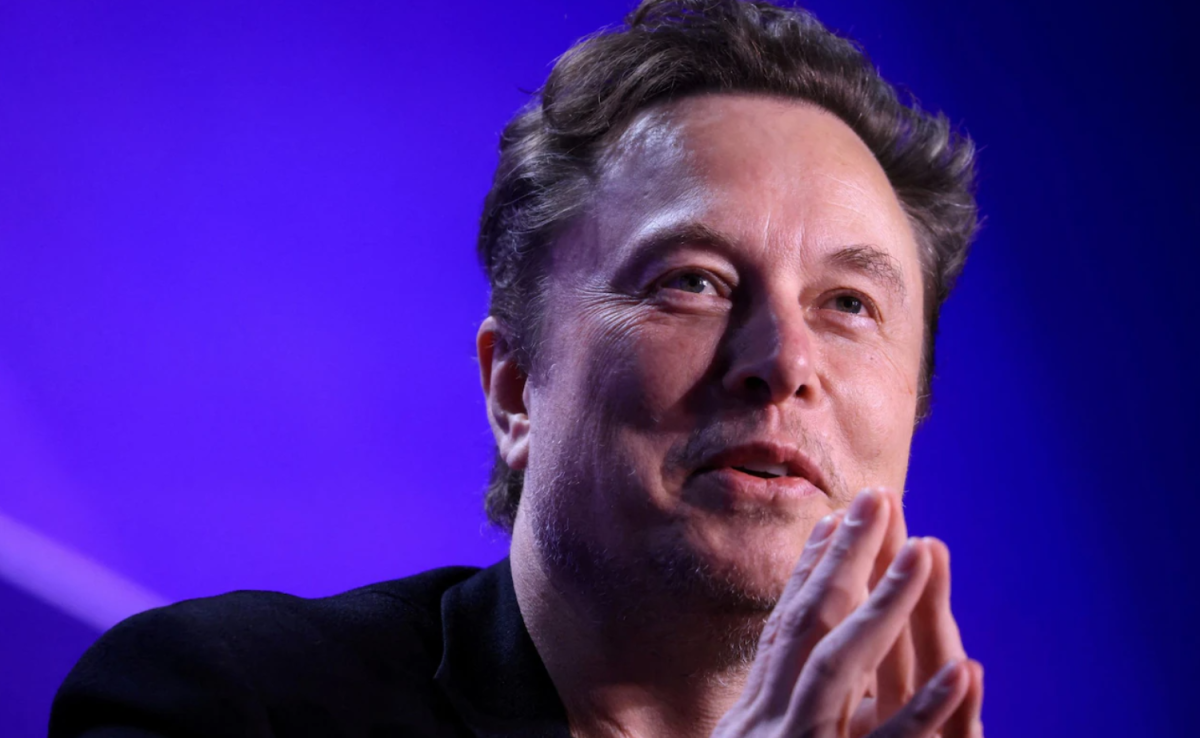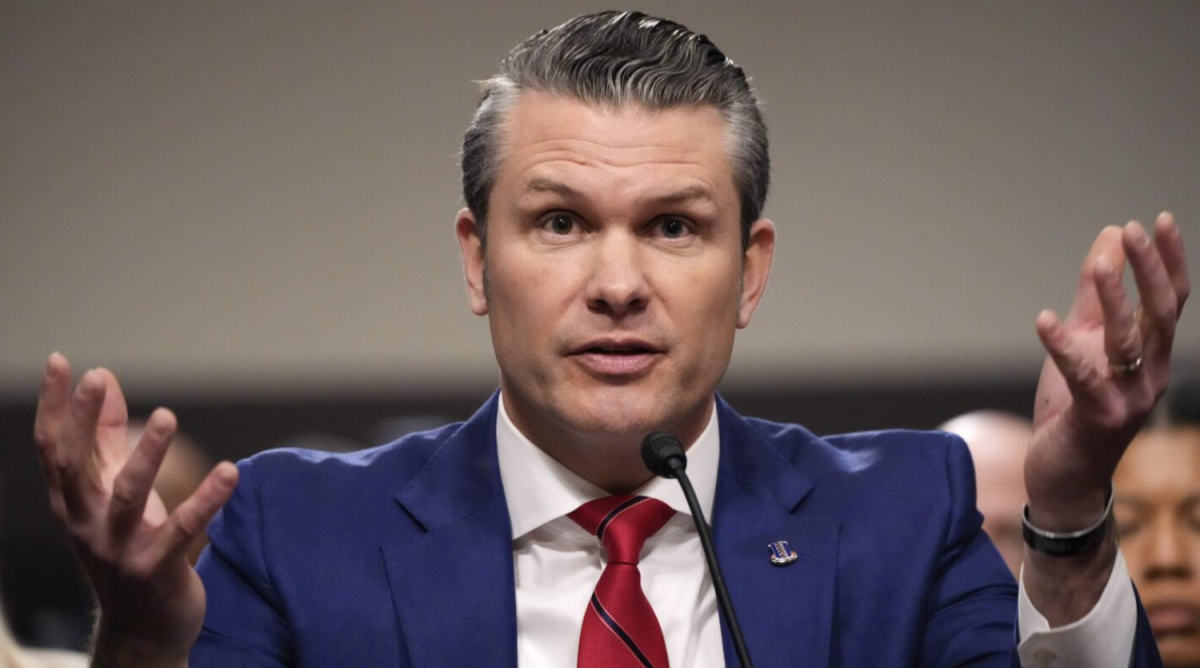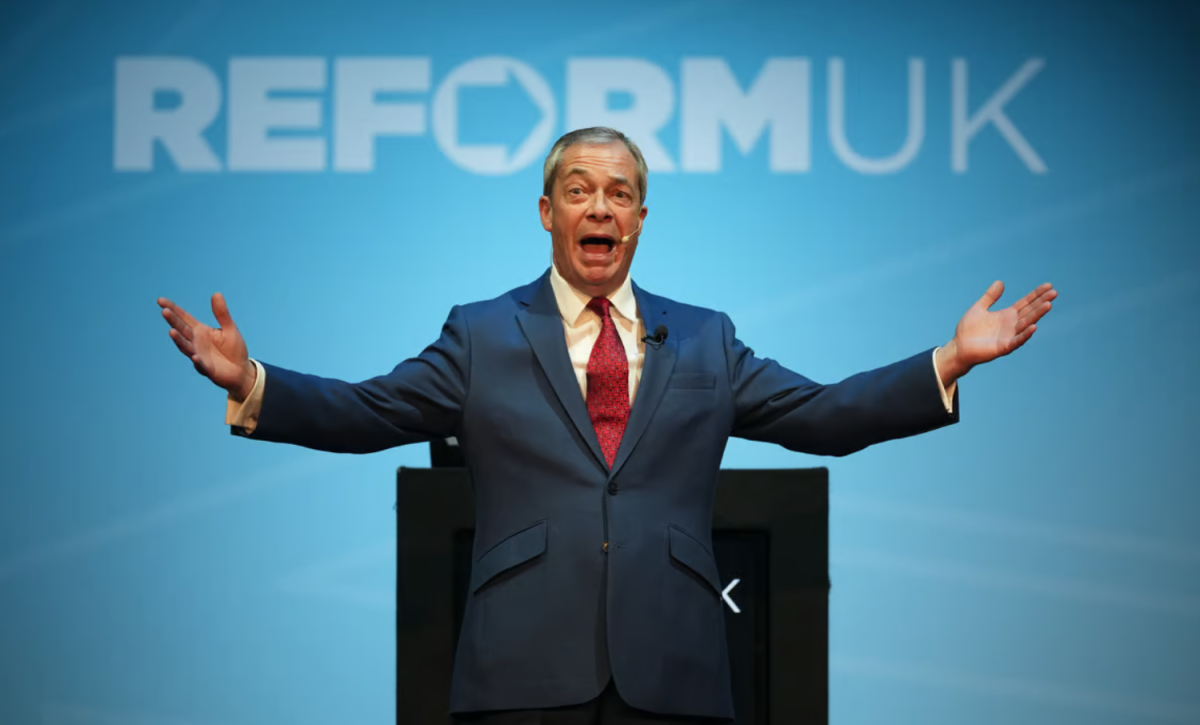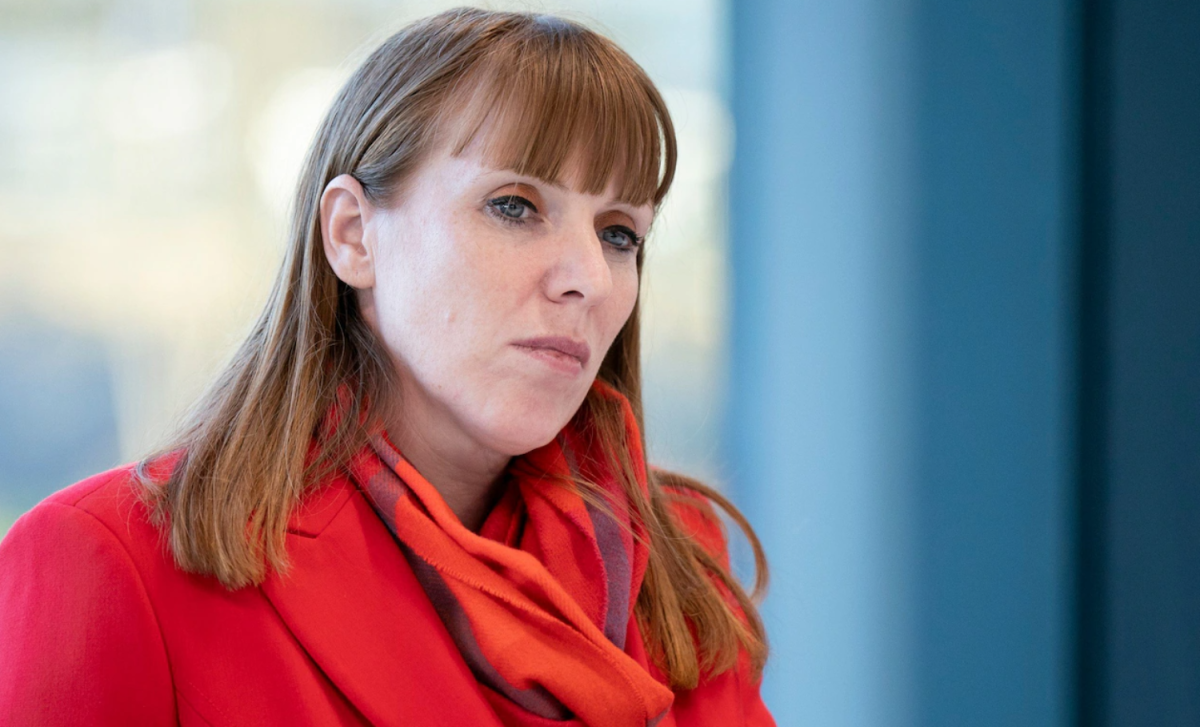-
Posts
10,807 -
Joined
-
Last visited
Content Type
Events
Forums
Downloads
Quizzes
Gallery
Blogs
Everything posted by Social Media
-
In a poignant farewell address marking the conclusion of his long political career, outgoing President Joe Biden issued a grave warning about the state of democracy in America. Speaking from the Oval Office, Biden, 82, cautioned against the rise of what he described as a "dangerous" oligarchy and unchecked power that threatens the nation's fundamental freedoms. “Today, an oligarchy is taking shape in America of extreme wealth, power, and influence that really threatens our entire democracy, our basic rights and freedom,” he stated with evident concern. His critique centered on the ultra-wealthy "tech-industrial complex," a powerful force he believes is capable of exerting undue influence over American society. During the address, Biden reflected on the achievements of his administration, highlighting progress in job creation, infrastructure investments, healthcare improvements, and guiding the country out of the pandemic. He expressed confidence that the policies enacted during his tenure would bear fruit in the years to come, saying, “It will take time to feel the full impact of all we’ve done together, but the seeds are planted, and they’ll grow and they’ll bloom for decades to come.” Despite his optimism, Biden did not shy away from voicing his concerns about pressing issues, including climate change and the pervasive spread of misinformation. Addressing the climate crisis, he warned, “Powerful forces want to wield their unchecked influence to eliminate the steps we’ve taken to tackle the climate crisis to serve their own interests for power and profit.” The president also sounded the alarm about the dangers of misinformation, describing it as an avalanche that threatens to undermine truth and empower abuse. His critique extended to social media platforms, notably singling out Meta for its decision to remove independent fact-checkers. “Social media is giving up on fact-checking. The truth is smothered by lies told for power and for profit,” Biden remarked, taking a veiled jab at prominent tech figures like Elon Musk, Jeff Bezos, and Mark Zuckerberg. Musk, in particular, came under indirect fire due to his financial backing of Donald Trump’s campaign and his influence as one of the world’s wealthiest individuals. As he concluded his speech, Biden expressed his hopes for the future and encouraged Americans to remain vigilant in protecting their democracy. “May you all be the keeper of the flame,” he implored, emphasizing the critical role citizens play in safeguarding the nation’s values. In a significant moment during his address, Biden announced a ceasefire agreement between Israel and Hamas, which he described as one of the toughest negotiations of his career. The deal, set to take effect just a day before Trump’s inauguration, marked a critical diplomatic achievement. While Trump claimed credit for the agreement, asserting it was possible only because of his election victory, Biden firmly highlighted his administration's role in securing the accord. As the Biden presidency comes to a close, his farewell speech serves as both a reflection on his tenure and a cautionary call to action. With “so much at stake,” the departing leader urged Americans to stand united in the face of challenges, ensuring that the ideals of democracy endure. Based on a report by BBC 2024-01-17
-
A Queensland-based Australian influencer has been charged with the shocking crime of poisoning her infant daughter, allegedly to garner sympathy, boost her online following, and solicit donations. Authorities allege the 34-year-old woman documented her one-year-old daughter's fabricated battle with a terminal illness on social media, posting videos and updates designed to elicit emotional responses and financial support. Detectives claim she deliberately administered unauthorised medications to her child, resulting in severe distress and pain, which she captured on camera. The case came to light in October when the baby was admitted to a hospital following a critical medical episode. Concerned doctors reported the situation to authorities, prompting a months-long investigation. Police say tests later confirmed the presence of unauthorised medications in the child's system. Queensland Police Detective Inspector Paul Dalton described the alleged crimes as "repulsive," stating, “[There are] no words for how repulsive offences of this nature are.” According to investigators, the woman sourced the unauthorised medications through various means between August and October, including using leftover prescriptions intended for someone else in her household. Police allege she went to great lengths to conceal her actions, raising significant concerns about premeditation. The woman is accused of raising AUD 60,000 (approximately £30,500 or $37,300) through a GoFundMe campaign. The platform is now working to refund the donations, Det Insp Dalton confirmed. Authorities also investigated other individuals who might have been involved in the alleged abuse but found no evidence to charge anyone else. The woman now faces charges of torture, administering poison, producing child exploitation material, and fraud. She is scheduled to appear before the Brisbane Magistrates Court on Friday. This deeply troubling case highlights the dangers of exploiting vulnerable individuals, particularly children, for personal gain. As the investigation continues, many are left grappling with the gravity of the allegations and the potential long-term impact on the young child. Based on a report by BBC 2024-01-17
-
Under the stewardship of Rachel Reeves, Britain's first female Chancellor of the Exchequer, the country has indeed seen growth—a grim kind of growth. Businesses are shuttering, inflation is climbing, and a pervasive gloom is spreading across the nation. As Reeves embarked on her journey to China, seeking financial aid, it seemed her only firm grip on the situation was her meticulously manicured nails. Reeves is clinging to her position by the slimmest margin, while the bond markets show little tolerance for her financial strategies. The self-proclaimed champion of "fully funded and fully costed" budgets has delivered a fiscal plan so dire that it risks stifling economic growth entirely. Her approach, perceived as generous handouts to an underperforming public sector, failed to win the confidence of financial markets, pushing Britain to the brink of financial instability. The once-celebrated mantra "security is the change" has ironically devolved into mounting insecurity, with the country now viewed as less credit-worthy than Greece. Reports of Reeves feeling "very depressed" due to the bleak economic outlook have surfaced. However, her empathy might be too little, too late for those facing the real-world consequences of her policies—farmers fearing the loss of their land, pensioners unable to afford heating, and small businesses forced to close. These struggles are the direct fallout of what critics label as Reeves’s brand of misguided, ideological politics. The true impact of her tax policies will only be felt in the coming months, potentially resulting in significant job losses and a further exodus of wealth from the country. Despite Sir Keir Starmer’s public backing of Reeves, doubts linger about her long-term tenure. The Prime Minister's assurances have done little to quell market fears, and the comparison to the infamous lettuce outlasting Liz Truss in office has resurfaced in media commentary, suggesting that Reeves's tenure might not extend much beyond the immediate future. Economist Liam Halligan’s prediction that Reeves’s tax-heavy approach would draw the ire of the bond markets has come true with startling speed. The economic strategy, or lack thereof, has not only unnerved markets but also left Reeves visibly strained and fatigued, as evident during her recent appearances. The notion that Reeves’s tenure represents a landmark achievement for women in politics has lost its sheen, overshadowed by her perceived incompetence. Her early promises of pro-business policies have given way to tax hikes that disillusioned her once-supportive business community. Her inability to navigate the complex economic landscape has led to suggestions that her resignation would be in the country’s best interest. The media response to Reeves's financial missteps has been relatively muted compared to the uproar following Liz Truss's mini-budget debacle. However, the looming economic calamity under Reeves’s leadership presents a more severe threat. If the International Monetary Fund were to intervene, one wonders if it would even capture significant media attention. Reeves’s self-congratulatory celebrations of breaking the glass ceiling appear tragically ironic as the consequences of her policies threaten to shatter the livelihoods of many. The growth she has fostered is not the kind the nation hoped for—it is a growth in closures, inflation, and despair. In light of the resignation of anti-corruption minister Tulip Siddiq, which could undermine the government's stability, Reeves might retain her position a bit longer. However, this reprieve should not be mistaken for a vote of confidence in her abilities. Her tenure has demonstrated a troubling lack of capacity to manage the country’s economy, making her departure a necessary step for the nation's recovery. For the sake of Britain’s future, a change in leadership at the Treasury is imperative. Based on a report by Daily Telegraph 2024-01-17
-
A cease-fire agreement in Gaza has paved the way for the release of 33 hostages from the clutches of Hamas, marking a significant and heartening development. The first group is expected to be freed within days, with additional releases to follow in the initial phase of the deal. This news is a source of immense relief and joy for the hostages, their families, and the entire nation. It also stands as a notable achievement for Donald Trump, the incoming U.S. president, whose stern warnings that "all hell will break out" if the hostages weren't released seem to have played a crucial role in finalizing the agreement. Appreciation is also due to the diplomatic efforts of both Trump's and Biden's teams, who worked together to secure this outcome. Israeli Prime Minister Benjamin Netanyahu's steadfast military pressure on Hamas, despite calls for de-escalation, was another key factor in compelling the terrorist group to agree. The deal, however, is not without its risks. Israel's withdrawal from populated areas of Gaza as part of the agreement could potentially embolden Hamas by alleviating immediate military threats. Furthermore, the release of over 1,000 Palestinian prisoners, some of whom are convicted killers, could lead to renewed attacks, as seen with Yahya Sinwar, who orchestrated the October 7 massacre after being released in a prior hostage deal. Despite being weakened, Hamas still wields considerable influence in Gaza and has been actively recruiting new fighters to replace its losses. Secretary of State Antony Blinken has acknowledged that these recruits have nearly replenished Hamas's ranks. The most concerning aspect of the deal's second phase involves the complete withdrawal of Israeli forces from Gaza to secure the release of the remaining hostages, raising fears of a permanent cease-fire that could leave Hamas in control. President Biden has expressed hope that the cease-fire will persist even if Phase 2 negotiations stall, provided discussions continue. However, this scenario could allow Hamas to prolong the talks and rebuild its infrastructure. Fortunately, the resolution of these issues will likely fall to Trump and Netanyahu, who are expected to adopt a firmer stance. In essence, the cease-fire is a temporary measure, dependent on Israel's agreement to a permanent arrangement. If Hamas complies and refrains from reneging on its commitments, this deal could lead to the liberation of roughly half of the remaining hostages—a significant accomplishment in itself. Israel's control over Gaza's southern border remains intact, limiting Hamas's ability to resupply and offering a glimmer of hope that the remaining hostages can be rescued soon. Israel retains the right to resume military actions if Hamas refuses to capitulate. As we celebrate the imminent return of the innocent hostages, let us also pray for a lasting resolution that ensures peace for the Israeli people and triumph over those who have caused such suffering. Based on a report by NYP 2024-01-17
-
A senior Hamas leader, Khalil al-Hayya, proclaimed that Israel had failed to achieve its objectives in Gaza and described a recently announced ceasefire-hostage deal as a “historic moment.” Speaking to the German news agency DPA, al-Hayya stated, “Our people have thwarted the declared and hidden goals of the occupation. Today we prove that the occupation will never defeat our people and their resistance.” In his remarks, al-Hayya praised the October 7, 2023, attacks that resulted in the deaths of approximately 1,200 Israelis, describing the events as a “military accomplishment” and “a source of pride for our people.” These attacks, characterized by widespread atrocities, were the deadliest massacre of Jews in a single day since the Holocaust. He further declared that the operation would be remembered as a defining moment to be celebrated by future generations of Palestinians. Full speech with English subs Al-Hayya, who serves as the deputy chairman of Hamas’s political bureau and the group’s chief negotiator in ceasefire and hostage talks, reiterated Hamas’s commitment to the destruction of Israel. He described Jerusalem and the Al-Aqsa Mosque as central to their mission, stating, “Our people will expel the occupation from our land and from Jerusalem at the earliest time possible.” He also asserted, “Our enemy will never see a moment of weakness from us.” The leader extended his praise to Hamas’s allies, including Hezbollah in Lebanon and the Houthi rebels in Yemen, for their coordinated attacks on Israel. He emphasized the solidarity among groups aligned against Israel and underscored the continuing resistance movement. Hamas remains in possession of two Israeli civilians who entered Gaza in 2014 and 2015, as well as the bodies of two Israeli soldiers killed in 2014. Despite engaging in negotiations for the ceasefire, al-Hayya insisted that Hamas would not waver in its objectives and celebrated the ceasefire deal as an achievement that reflects their resolve. Based on a report by NYT | TOI 2024-01-17
-
Runcorn and Helsby MP Mike Amesbury has admitted to assaulting a man in Cheshire, an incident captured on CCTV footage that surfaced in late October. The footage shows Amesbury punching 45-year-old Paul Fellows to the ground and then continuing to strike him as members of the public intervened. Following the initial strike, Amesbury reportedly hit Mr. Fellows at least five more times while he was on the ground. Witnesses recounted hearing Amesbury say, “You won’t threaten your MP again, will you?” The incident, reported to police later that day, led to Amesbury being voluntarily interviewed under caution and subsequently charged with common assault on November 7. Amesbury, who has represented his constituency since 2017, was suspended from the Labour Party following the emergence of the footage and currently serves as an independent MP. The Labour Party has confirmed that his suspension will remain in place. Reform UK has called for Amesbury to resign, arguing that he should "do the honourable thing" and allow a by-election. The Prime Minister's spokesperson declined to comment on whether Amesbury should step down. Amesbury is scheduled to be sentenced next month. If he receives a prison term or a suspended sentence, he may face losing his seat in the House of Commons under parliamentary rules. Reflecting on the case, Amesbury acknowledged the seriousness of his actions, stating that the incident was "deeply regrettable" and affirming his cooperation with authorities. Based on a report by Sky News 2024-01-17
-

Pete Hegseth Pledges to Restore Warrior Ethos in U.S. Military
Social Media replied to Social Media's topic in World News
@thaibeachlovers having spent time editing some of your previous posts, they will now be removed completely should you persist in deliberatly spelling a country name (Israel) which is a noun as you well know without a capital letter. It is evidence of your pure antisemitism and will not be tolerated any more. Should you persist a warning will be issued. -

Israel Hamas War the Widening Middle East Conflict
Social Media replied to Social Media's topic in The War in Israel
An unapproved social media link removed @bannork that promotes false information and conspiracey theories -

Pete Hegseth Pledges to Restore Warrior Ethos in U.S. Military
Social Media replied to Social Media's topic in World News
An unapproved social media link source has been removed -

The Resurgence of Jihadist Threats: A Call to Vigilance
Social Media replied to Social Media's topic in World News
A post contravening numerous forum rules, making multiple nested response quotes to seperate members, Zionist trolling, unsubstaniated claims and false claims. Has been removed along with a number of replies. -
//TOPIC CLOSED// Running here: Netanyahu Praises Biden and Trump for Role in Ceasefire and Hostage Release Agreement
-
Israeli Prime Minister Benjamin Netanyahu extended his gratitude to both US President-elect Donald Trump and outgoing President Joe Biden for their critical roles in securing a ceasefire-hostage release agreement. The deal marks a significant turning point in the prolonged conflict between Israel and Hamas. In separate conversations, Netanyahu thanked Trump for his pivotal efforts in facilitating the agreement. “Thank you for your help in advancing the release of the hostages and helping Israel to bring an end to the suffering of dozens of hostages and their families,” Netanyahu expressed, according to a statement from the Prime Minister’s Office. Trump later confirmed the deal via his Truth Social account, declaring, “WE HAVE A DEAL FOR THE HOSTAGES IN THE MIDDLE EAST. THEY WILL BE RELEASED SHORTLY. THANK YOU!” Netanyahu also acknowledged Biden’s contributions, emphasizing the importance of his earlier commitment that Gaza will “NEVER again become a terrorist safe haven.” The two leaders reportedly agreed to meet soon in Washington, highlighting the continued collaboration between the US and Israel on regional stability. The announcement also marked Netanyahu’s confirmation that Israel has accepted the US and Qatari-brokered agreement. The ceasefire, set to take effect on January 19, includes the release of 33 Israeli hostages held by Hamas over a 42-day period. Qatari Prime Minister Mohammed bin Abdulrahman Al Thani confirmed the deal from Doha, praising the international cooperation that made the agreement possible. Details of the deal outline a six-week ceasefire phase, during which Hamas will gradually release hostages in exchange for over 1,000 Palestinian prisoners held by Israel. Among the hostages to be freed are women, children, elderly individuals, and infirm men. Hamas has disclosed that not all 33 hostages are alive, but under the agreement, it must provide Israel with updates on their status within the first week. Trump emphasized the broader implications of the agreement, claiming that his election victory was a catalyst for the progress. “The EPIC ceasefire agreement could only have happened after I won the US presidential elections in November,” he stated, while pledging that his administration will work to ensure Gaza will no longer serve as a “terrorist safe haven.” This milestone comes after 15 months of conflict that began with a devastating Hamas attack on southern Israel. The agreement reflects a collective effort by international stakeholders, including Egypt and Qatar, to address the humanitarian crisis and create a foundation for a more stable future in the region. Based on a report by TOI | MSM 2024-01-16
-
The past few years have highlighted the fragility of societies and the inevitability of the downfall of dictators. Vladimir Putin, after 25 years in power, has left Russia weaker, poorer, and far removed from the rule of law. He has pursued policies that have sacrificed countless citizens, invaded sovereign nations, and waged a covert war against the West. Under Putin, Russia is no better than a shadow of its former self. “Putin is just a gangster with a gas station,” a current leader of a former Russian ally recently remarked, underscoring the degradation of the nation. Once a global player, Russia now relies on countries like North Korea for support and has become a client state of China—a far cry from the superpower Putin likely envisioned. When Putin decided to invade Ukraine illegally, the world’s initial response was to separate the Russian people from the Kremlin. The narrative stressed, “This is not the Russian people; it is just a small clique in the Kremlin.” However, the past three years have dismantled this view. Support for the invasion and the atrocities committed—torture, mass murder, assassinations, and cyberattacks—is widespread among Russians. This echoes dark periods in history, such as Adolf Hitler’s Germany, where public support fueled despicable acts. Unlike the Soviet era, when dissidents spoke out against oppression, today’s Russian dissenters are few. Many Russians abroad in places like the UAE, Cyprus, and Europe not only defend Putin but also take measures to shield their own families from the war’s consequences, revealing a deep contradiction in their stance. The question now is how to address this gangster state. Russia must be placed behind self-imposed bars, isolated and constrained by global unity. Despite sanctions, Russia continues to act as if nothing has changed. Its elites thrive in Western capitals, and a shadow fleet smuggles goods, exports oil, and undermines global stability. British brands still thrive in Moscow, revealing the cracks in the sanctions. To counter this, the West must build high walls. Diplomatic pressure must target havens like Cyprus, the UAE, and Switzerland to restrict Russian elites. Wealthy Putin supporters should be ostracized from international circles. Just as criminals are removed from society, Russia must be isolated until it abandons its destructive path. Such measures would also counter Russia’s fabricated narrative that NATO is poised to invade. As the saying goes, no one wants to break into a prison. The isolation will strip Putin of his false strength, weakening his grip on power. In the end, even the most formidable autocrats fall. As Winston Churchill once said, “Dictators ride to and fro upon tigers which they dare not dismount. And the tigers are getting hungry.” In Russia, the mothers and widows of those sacrificed in war will grow increasingly restless. Change is inevitable, and Putin’s days, like those of all despots before him, are numbered. Based on a report by Daily Telegraph 2024-01-16
-
Clevedon Cricket Club in the UK became the center of eerie intrigue after unsettling footage captured what appeared to be an "orb-like figure" floating around the bar after hours. The footage, recorded on Tuesday, January 7, left the club's chairman baffled, with some describing the phenomenon as a "ghost figure." The CCTV footage, shared on the club's Facebook page, reveals a glowing orb moving up and down near the bar area. At one point, what seems to be a second figure joins in, floating behind the bar. The club, perplexed by the footage, turned to their followers for answers, writing, “How’s this for unusual? Chairman checks the CCTV after the Wi-Fi drops off at the clubhouse, only for the footage to reveal some orb-like figure floating around?” The footage quickly gained attention, sparking lively discussions online. While some dismissed it as a mere camera glitch or light reflection, others were more inclined to believe in a paranormal explanation. One intrigued commenter even suggested enlisting the help of experts, writing, “I have a group of paranormal investigators who’d be happy to come and check the place out!” The sighting has left the club and its patrons scratching their heads, with the mysterious "orb" continuing to captivate the imagination of the local community. Whether a trick of the light, a technical anomaly, or something more otherworldly, the strange sighting has certainly added an unexpected twist to Clevedon Cricket Club’s story. Based on a report by NYP 2024-01-16
-
The decision to repeal key sections of the Northern Ireland Troubles Act has sparked a backlash, with former Sinn Fein leader Gerry Adams poised to receive taxpayer-funded compensation. This move, part of Sir Keir Starmer’s human rights reforms, has drawn criticism from senior peers and IRA bomb victims alike. Adams, who led Sinn Fein for decades, was detained in the 1970s on suspicion of terrorism. The current law, which blocks his claim for compensation, is set to be reversed under Starmer's plans. These changes come after a Northern Irish high court found the 2023 Northern Ireland Troubles Act incompatible with human rights laws, prompting the Government to revise its stance. Hilary Benn, the Northern Ireland Secretary, defended the repeal, emphasizing the Government’s dedication to the Human Rights Act. However, this has not quelled the outcry from various quarters. A report by the think tank Policy Exchange, released on Tuesday night, documented objections from 16 notable peers, including former Labour security minister Lord West and ex-director of public prosecutions Lord MacDonald. They urged Labour to reconsider, warning that reopening such cases could hinder reconciliation efforts in Northern Ireland. Lord Hope, a former deputy president of the Supreme Court, labeled the Government's actions as "wholly inappropriate," cautioning against Parliament surrendering its authority. Suzanne Dodd, whose father was killed in the 1983 IRA Harrods bombing, expressed her disbelief: “Considering the IRA victims have not received any compensation, how could Gerry Adams get compensation? My father was killed 41 years ago, and it is highly unacceptable to hear that.” Adams has always denied IRA membership. His 1975 conviction for attempting to escape the Maze prison was quashed in 2020 by the Supreme Court, which ruled his detention was unlawful as his custody order was signed by a minister instead of the secretary of state. This decision paved the way for compensation claims, prompting the previous government to introduce an amendment to block these payouts, a move supported by Labour at the time. The peers' report states, “Parliament was unusually united in reasoning that the Supreme Court’s judgment was mistaken and that it needed to be reversed to restore the Carltona principle.” However, Patrick Fitzsimmons, another former detainee, successfully challenged this legislation in the Northern Ireland high court on human rights grounds. With Labour in power since July, the party has opted not to appeal but to repeal the contested sections. Lord Hermer, the Attorney General, who previously represented Adams in a damages claim, might have had a role in this decision. In 2023, Adams faced a damages claim from victims of IRA bombings in London and Manchester, which could add complexity to the current scenario. Legal experts and policymakers have criticized the repeal. Richard Ekins, a law professor at the University of Oxford, and Sir Stephen Laws, a former first Parliamentary counsel, denounced the changes as "inexplicable and unjustifiable." Ekins warned of a flood of "meritless litigation" and potential misuse of public funds, a sentiment echoed by shadow attorney general Lord Wolfson, who called for scrutiny over the Government's decision. The Northern Ireland Troubles Act, also known as the Legacy Act, was designed to offer conditional immunity for Troubles-era crimes, end soldier prosecutions, and halt related inquests and civil actions. Labour had pledged to repeal the Act in its manifesto, reflecting widespread opposition in Northern Ireland to the previous Government's approach. A Government spokesman clarified, “During the Legacy Act’s passage, the last Government agreed to an amendment on the custody orders. Last year, this amendment was ruled unlawful by the Northern Ireland Courts, and therefore it needs to be repealed. We must never forget that the vast majority of deaths and injuries during the Troubles were caused by acts of terrorism.” This controversial repeal highlights ongoing tensions surrounding the legacy of the Troubles and the pursuit of justice and reconciliation in Northern Ireland. Based on a report by Daily Telegraph 2024-01-16
-
In post-2003 Iraq, there have been numerous attempts by Islamist factions to alter family laws to increase religious authorities' influence. These efforts have largely failed, but this time, the situation seems more precarious. “This is the closest we've come to actually seeing this through, and if this happens it's probably going to be one of the most impactful events in Iraq's post-2003 history, with huge repercussions going forward,” Alshamary tells TIME. The proposed amendment seeks to modify the 1959 Personal Status Law, allowing Muslim families the option to marry under civil or religious law. Presently, all marriages and divorces must be processed through secular civil courts to be recognized by the government. If the amendment passes, Muslim families would have the option to marry under either the Sunni or Shi’ite legal systems. The amendment raises significant concerns, particularly regarding the potential for legalizing child marriage. The Ja’fari school of Shi’ite Islam, interpreted by some clerics, permits marriage for girls as young as nine. While not all Shi’ite clerics support this interpretation, the possibility has alarmed activists. Given that Shi’ite Muslims constitute about 55-60% of Iraq’s population, according to the U.S. Department of State, the amendment could impact a substantial portion of the population. Child marriage is already a pervasive issue in Iraq, with a 2023 UNICEF report indicating that approximately 28% of girls marry before 18. The amendment could exacerbate the problem. “Just the possibility of [legalizing child marriage] is alarming enough because we already see significant underage marriage in Iraq,” Alshamary warns. Experts also caution that the amendment risks deepening sectarian divisions in a country still reeling from the fractures intensified by the 2003 invasion. “This proposal takes away [power] from the state and gives it to the religious establishment,” says Nida Alahmad, a lecturer at the University of Edinburgh. She fears that establishing separate legal systems for Sunni and Shi’ite Muslims could further entrench sectarian divides. “[It] makes the state fragmented and further institutionalized along sectarian groups.” The next steps for the amendment involve a parliamentary debate before it can be scheduled for a vote. A simple majority in parliament would suffice to pass the amendment into law. As of now, an official debate has not been scheduled. Based on a report by Time 2024-01-16
-
Starbucks has announced a significant shift in its store policy, reversing a six-year-old open-door approach that allowed anyone to use its facilities without making a purchase. The updated rules, revealed on January 13, prioritize paying customers and aim to create a safer and more comfortable environment within its North American locations. The new code of conduct, set to be posted in all company-owned stores, prohibits individuals from using restrooms or loitering without making a purchase. Violators will be asked to leave, and in some cases, law enforcement may be contacted. Starbucks employees will undergo training to enforce these new guidelines effectively. In addition to limiting access to non-paying visitors, the updated policy includes a ban on discrimination, harassment, smoking, vaping, outside alcohol consumption, drug use, and panhandling. Starbucks spokesperson Jaci Anderson emphasized that these changes align with the practices of most other retailers. “We want everyone to feel welcome and comfortable in our stores,” Anderson stated. “By setting clear expectations for behavior and use of our spaces, we can create a better environment for everyone.” This policy marks a departure from the company’s 2018 decision to allow unrestricted public access to its stores. That change was implemented following a widely publicized incident in Philadelphia, where two Black men were arrested while waiting for a business meeting at a Starbucks. They had not made a purchase, and the store’s policy at the time required non-paying visitors to leave. The incident, captured on video, sparked national outrage and led to apologies from Starbucks and its then-chairman, Howard Schultz. Reflecting on the 2018 decision, Schultz had said, “We don’t want to become a public bathroom, but we’re going to make the right decision a hundred percent of the time and give people the key.” Despite the intention to foster inclusivity, the open-door policy introduced challenges, including reports of disruptive and unsafe behavior in some stores. The current CEO, Brian Niccol, has expressed a commitment to revitalizing Starbucks as a welcoming and functional space for customers. In an open letter, Niccol noted a “shared sense that we have drifted from our core” during discussions with employees and customers. He emphasized the importance of restoring Starbucks as a gathering place while improving operational efficiency, particularly during high-traffic periods like the morning rush. This policy update underscores Starbucks’ efforts to balance inclusivity with the needs of its paying customers and employees, signaling a new chapter for the iconic coffee brand. Based on a report by The Independent 2024-01-16
-
Former England rugby star and BBC presenter Ugo Monye is facing severe financial challenges as he battles bankruptcy proceedings over an unpaid tax bill of nearly £200,000. The financial troubles surfaced after his company, Show Me The Monye, was liquidated, leaving unpaid taxes and National Insurance contributions. According to records from Companies House, HMRC obtained a winding-up order against Monye's business in December 2023. The company, established in 2012 to promote physical well-being, owed £108,562 in corporation tax and £72,967 in other taxes by the end of June 2022. In a further blow, HMRC filed a bankruptcy petition against Monye in the High Court on December 4, 2023. Monye's financial difficulties have unfolded after his tenure on the BBC's "A Question of Sport" ended prematurely. The long-running sports quiz show was revamped with Monye, Sam Quek, and Paddy McGuinness leading the program. However, the revamp lasted just two years before being axed, leaving Monye without a significant platform. Monye is not the only former England rugby star to face financial distress. Lawrence Dallaglio, a World Cup-winning former England captain, is also grappling with a significant tax burden. Liquidators have claimed Dallaglio owes £423,570.43, a figure that includes money loaned from his company, Lawrence Dallaglio Limited. Documents reveal that Dallaglio has not responded to demands for repayment, despite liquidators seeking funds to address debts, including £290,000 and £64,000 owed to HMRC. Other creditors include Parker Cars Limited, owed £1,891.82, and Coutts Bank, owed £24,000. The liquidators' report detailed financial losses incurred by Dallaglio’s company, including missed payments from ITV during the Rugby World Cup. The broadcaster invoked an insolvency clause, withholding payments for work during the tournament's knockout stage after the company entered liquidation. These high-profile cases highlight the financial risks faced by professional athletes transitioning to new careers after their sporting days. Despite their success on the field, both Monye and Dallaglio are now contending with the significant financial and legal pressures that accompany unpaid tax debts. MailOnline reached out to Monye for comment, but no response has been provided at this time. Based on a report by Daily Mail 2024-01-16
-
Chinese officials are reportedly considering selling TikTok's US operations to Elon Musk as a contingency plan amid mounting pressure from the United States. The video-sharing platform, owned by Chinese tech giant Bytedance, faces a looming ban in the US if it does not comply with a new law requiring its separation from its parent company due to national security concerns. The deadline for compliance is January 19, at which point TikTok could be removed from US app stores. In response to the potential ban, TikTok has taken its case to the Supreme Court, arguing that such a move infringes on its free speech rights. Despite this, several justices appear inclined to uphold the legislation. TikTok maintains that it poses no national security threat and operates independently of Bytedance. Discussions in Beijing among senior government advisers have reportedly included the possibility of selling TikTok’s US operations to Elon Musk. Bloomberg has described these discussions as highly preliminary and lacking clarity on whether formal negotiations have occurred with TikTok or Musk. Bytedance has consistently denied any plans to sell the platform, and TikTok has dismissed the recent reports as "pure fiction." Musk, known for his opposition to restricting free speech, has previously voiced disapproval of banning TikTok. "In my opinion, TikTok should not be banned in the US, even though such a ban may benefit the X platform," he stated last year. "Doing so would be contrary to freedom of speech and expression. It is not what America stands for." The idea of Musk acquiring TikTok could align with his expressed stance on freedom of expression and his cordial relationship with China. Tesla, Musk's car company, operates its largest factory in the country, and he has called himself a "big fan of China." This connection could potentially ease approval from the Chinese government, which would be essential for any sale. Meanwhile, former President Donald Trump, who initially pushed for a ban on TikTok during his first term, has shifted his position. He has appealed to the Supreme Court to delay the ban, expressing hope for a "political resolution." Trump also described TikTok as a valuable counterweight to Facebook, stating he has a "warm spot in my heart for TikTok." Should TikTok be put on the market, it is expected to attract a price tag in the tens of billions of dollars. Interest in acquiring the platform has already been expressed by billionaire Frank McCourt and US investor Kevin O’Leary. However, separating TikTok from Bytedance could prove “extraordinarily difficult,” according to the company. As the January 19 deadline approaches, the future of TikTok in the US remains uncertain. While discussions of a potential sale to Musk remain speculative, the debate underscores the broader tensions between the US and China over technology and national security. Based on a report by Daily Telegraph 2024-01-16
-
Pete Hegseth, Donald Trump’s pick for defense secretary, faced a challenging Senate confirmation hearing on Tuesday, defending himself against allegations of misconduct and asserting his commitment to reshaping the U.S. military. The 44-year-old combat veteran and former Fox News host promised to eliminate “wokeness” and instill a renewed “warrior culture” under Trump’s leadership. As the first of Trump’s cabinet nominees to face a Senate hearing, Hegseth’s confirmation is seen as a litmus test of the former president’s influence over the Republican Party. Despite the GOP holding a 53-47 Senate majority, skepticism about Hegseth’s ability to manage the Pentagon’s $850 billion budget and oversee its vast military and civilian workforce lingers among some Republicans. Democratic senators were particularly pointed in their criticism. Jack Reed, the ranking Democrat on the Senate Armed Services Committee, argued that the allegations against Hegseth, including claims of workplace intoxication, would disqualify any other military leader from a position of authority. Hegseth dismissed these allegations, stating, “It was a false claim then, it’s a false claim now,” regarding a 2017 sexual assault investigation, which he settled out of court last year as a “nuisance lawsuit.” Hegseth also reiterated his resolve to depoliticize the military, vowing to remove “woke” policies and ensure accountability within the armed forces. He pledged a thorough review of senior military leadership, including General Charles Q. Brown, the chairman of the Joint Chiefs of Staff, if Trump requested it. “The wokeness comes not from the uniformed ranks, but from the political class,” Hegseth stated, promising a “recruiting renaissance” to address declining enlistment numbers. However, his critics remain unconvinced. Senator Tammy Duckworth, an Iraq War veteran and double amputee, called Hegseth “wholly unqualified” for the challenges ahead, which include the ongoing war in Ukraine, escalating tensions with China, and instability in the Middle East. “How can we ask … soldiers to train and perform at the absolute highest standards when you are asking us to lower the standards to make you secretary of defense?” Duckworth questioned. Trump, who will return to the White House on Monday, expressed unwavering support for his nominee. In a social media post before the hearing, the former president affirmed Hegseth’s capability, declaring he had Trump’s “complete and total support.” If confirmed, Hegseth will face the dual challenges of addressing external global threats and navigating internal divisions within the U.S. military. His vision of reshaping the Pentagon to reflect a more traditional “warrior culture” underscores his determination to align the armed forces with Trump’s broader agenda. Based on a report by The Times 2024-01-16
-
For 42 years, a mother lived in a three-story house in Oswiecim, southern Poland, overlooking a former gas chamber and gallows at Auschwitz. Despite the grim history just beyond her garden wall, she found the house to be a serene place to raise her two sons. Garzyna Jurczak, a 62-year-old widow, described the home as having "safety, silence, a beautiful garden," and access to a river, with enough space for an ice-skating rink during winter. This house, once the residence of Auschwitz’s wartime commandant Rudolf Höss, gained new attention after the release of the Oscar-winning movie "The Zone of Interest." Ms. Jurczak was troubled by the increased attention from visitors who, inspired by the film, would peer through her windows and wander her garden, reminding her of the house's dark past. Last summer, she decided to sell the house to the Counter Extremism Project, a New York-based group. By August, she had moved out, and by October, the organization finalized the acquisition of the house and an adjacent post-war property. The plan is to open the house, located at 88 Legionow Street, to the public for the first time. This event will coincide with the 80th anniversary of the Soviet Army’s liberation of Auschwitz. The Auschwitz-Birkenau State Museum, dedicated to preserving the memory of Nazi victims, will host world leaders on January 27 for the commemorations. In preparation for the public opening, the new owners have cleared 14 dumpsters of debris, stripping the house down to its state during the Höss family’s occupancy from 1941 to 1944. A Nazi-era lock on a bathroom door, reading “frei/besetzt” (free/occupied), remains intact. To honor Jewish tradition and reject the fanaticism of the house's former resident, a mezuzah now adorns the front door frame. Commandant Höss, after the war, recalled how the successful experimental gassing of Russian prisoners in 1941 set his mind at ease for the mass extermination of Jews. He was hanged in 1947 near his former home and a Nazi crematory. Inside the house, artifacts from the Nazi era have been found, including a coffee mug embossed with the SS seal and German beer bottles. Striped trousers, once worn by an Auschwitz prisoner, were discovered in the attic, stuffed to block a hole. Researchers are working to identify the owner through a faded prisoner number and symbols indicating the individual was a political prisoner and a Jew. Mr. Wallace of the Counter Extremism Project stated, "This house has been closed for 80 years. It was out of reach to the victims and their families. Finally, we can open it to honor survivors and show that this place of incredible evil is now open to all." The organization plans to turn the house and the adjacent property into the Auschwitz Research Center on Hate, Extremism, and Radicalization. This new center aims to expand the pledge of "Never Again" from historical memory to contemporary action. Originally built between the two world wars by a Polish military officer, the house was seized by the Nazis after their 1939 invasion of Poland and used as the commandant’s residence. At least 1.1 million people, mostly Jews, were murdered at Auschwitz. The house returned to its original owner post-war and was later sold to Ms. Jurczak’s family. Mr. Cywinski, director of the Auschwitz-Birkenau Museum, expressed his readiness to collaborate with the Counter Extremism Project to combat extremism. He noted that extremism is a method that manipulates widespread frustration and warned that ordinary people with ordinary ambitions can become monsters. "Mr. Höss," he reflected, "was a wonderful father to his kids and, at the same time, the main organizer of the most brutal killings in the history of the world." Based on a report by NYT 2024-01-16
-
As the United States prepares for the return of Donald J. Trump to the White House, media organizations are fortifying themselves against what they anticipate could be a significant legal and political onslaught from the new administration. The fear of increased federal leak investigations and subpoenas has prompted reporters and editors at major newspapers to heighten their use of encrypted communications, aiming to protect themselves and their sources. National media outlets are also reassessing their insurance coverage to ensure they are prepared for a possible surge in libel and other lawsuits from officials known for their litigious tendencies. Meanwhile, a nonprofit investigative journalism group is bracing for potential government scrutiny over its employment of freelancers, a move possibly aimed at challenging its compliance with labor laws. The climate of anticipation stems from Mr. Trump’s long-standing antagonism toward the press, which he has frequently labeled “the enemy of the people.” His history of suing news organizations and barring unfavorable journalists from White House events has set a precedent that media entities now fear will escalate. Early signs suggest that his administration could adopt an even more combative stance against the press. Kash Patel, Trump’s pick for FBI director, has indicated that the new administration would target media personnel. Similarly, Brendan Carr, expected to chair the Federal Communications Commission, has suggested revoking broadcast licenses for stations perceived as biased against conservatives. Although Mr. Trump is known for hyperbolic statements, media professionals are treating these threats with gravity. The potential for such aggressive measures is reshaping how journalists operate even before the administration formally begins. George Freeman, executive director of the Media Law Resource Center, compared the situation to preparing for an impending natural disaster without knowing its exact trajectory or intensity. "It’s a matter of guesswork right now, but people are still boarding up their houses," Freeman noted. In response to these threats, legal teams and editors at prominent publications like The New York Times, The Washington Post, The Wall Street Journal, The Associated Press, The New Yorker, and ProPublica have advised reporters to mitigate risks of exposure to subpoenas. This includes increased use of encrypted messaging apps like Signal for communicating with sources and, at times, among newsroom staff. Reporters have also been cautioned against storing sensitive materials on cloud platforms, which could be vulnerable to federal subpoenas directed at tech giants like Apple, Google, and Amazon. In some cases, journalists are being encouraged to dispose of notes and sensitive documents more swiftly after publication. Smaller news organizations are equally vigilant, implementing similar protective measures to safeguard their operations. As Mr. Trump's administration looms, the media is bracing itself for a challenging landscape, taking proactive steps to secure the integrity of their reporting and the confidentiality of their sources. Based on a report by NYT 2024-01-16
-
A new YouGov poll presents a worrying outlook for the Labour Party, revealing that Nigel Farage’s Reform UK is now just one point behind Labour in terms of voter support. The study, which is the first since last summer's general election that saw Labour secure a commanding victory, shows that the ruling party is currently at 26 percent, only narrowly ahead of Farage’s right-wing group, which stands at 25 percent. In a surprising twist, the once-dominant Conservatives, who had held power for 14 years before losing control in the 2024 elections, now find themselves trailing Reform UK with only 22 percent of the vote, securing them third place in the poll. The results have led to immediate declarations from Farage, who seized the opportunity to criticize the Conservative Party’s standing. “The Tory brand is completely broken,” he declared on X. “We are the real opposition to this disastrous government.” The poll highlights a significant shift in political dynamics. Labour, which has experienced considerable challenges since taking office, appears to be losing ground. The party has seen a notable dip in voter retention, with YouGov's data revealing that only 54 percent of Labour’s 2024 supporters would vote the same way if an election were held today. The poll also noted that Labour has lost 7 percent of its 2024 voters to the center-left Liberal Democrats, 6 percent to the Greens, 5 percent to Reform UK, and 4 percent to the Conservatives. Farage’s rise in popularity has been fueled by a variety of factors, including recent endorsements from high-profile figures. One such endorsement came from U.S. billionaire Elon Musk, who used his platform on X to criticize the current Labour government. However, the relationship between Musk and Farage has been complicated. The two figures had a public falling-out after Farage distanced himself from a far-right figure who had been supported by Musk, despite the billionaire’s significant backing. Although the general election is still some years away, the current polling data suggests that Labour’s early days in power have been tumultuous, marked by sluggish economic growth, contentious decisions surrounding social security and taxes, and a series of ethical controversies. POLITICO’s Poll of Polls shows that while Reform UK currently stands ahead of the Conservatives, with 24 percent to 22 percent, Labour maintains a four-point lead at 28 percent, indicating that Farage’s movement is a rising force to reckon with in British politics. This shift in the political landscape reflects growing disillusionment with the established parties, particularly Labour and the Conservatives. With the electorate showing a willingness to explore alternatives, Reform UK is positioning itself as a key challenger to Labour’s dominance in future elections. As the political climate continues to evolve, Farage’s party appears increasingly poised to impact the upcoming political battles. Based on a report by Politico 2024-01-16
-
Deputy Prime Minister Angela Rayner's proposed overhaul of Margaret Thatcher's landmark Right to Buy scheme is poised to significantly reduce access for council tenants. According to the Resolution Foundation, the reforms could strip 500,000 tenants of their eligibility to purchase their homes under the discount program. First introduced in 1980 by Margaret Thatcher, Right to Buy allowed millions of council tenants to purchase their homes at reduced rates, helping more than two million households enter homeownership. Among those who benefited was Rayner herself, who bought her council house in 2007 with a 25 percent discount. Now, she seeks to preserve Britain’s dwindling social housing stock by tightening the scheme’s requirements. The proposed reforms would extend the required residency period from three years to ten years before tenants can access the scheme, while also reducing the discounts available. A public consultation on these changes is expected to conclude on Wednesday. If implemented, the Resolution Foundation warns that half a million tenants will lose access to the scheme, effectively marking "the end of Right to Buy." Cara Pacitti, an analyst at the Resolution Foundation, emphasized the gravity of the shift, stating, "New restrictions being proposed by the Government will effectively mark the end of Right to Buy. But the job of replenishing Britain’s affordable housing stock has only just begun." While these changes aim to maintain the levels of social housing, the reforms face criticism for falling short of addressing England’s housing crisis. Many tenants eligible under the current system already struggle to afford their homes, with nearly half of the 500,000 tenants now facing exclusion living below the poverty line. The Resolution Foundation estimates that £15 billion would be required to build the 125,000 homes needed to house families currently living in temporary accommodation in England. To restore affordable housing levels to their 2010 share of the population, Rayner would need to construct an additional 400,000 homes, which could cost up to £50 billion. The Right to Buy scheme has long faced scrutiny for contributing to the depletion of England’s social housing stock. Homes sold under the program have not been replaced at the rate they were purchased, leading to a severe shortage of affordable housing. The proposed reforms, while aiming to protect remaining stock, highlight the broader challenges of meeting the demand for affordable homes. As Rayner’s government pushes forward with these reforms, the question remains whether these measures will be sufficient to tackle the chronic shortages and affordability issues plaguing the housing sector. Based on a report by Daily Telegraph 2024-01-16


